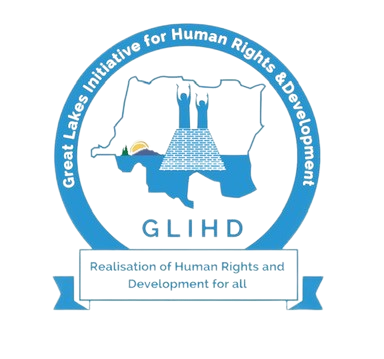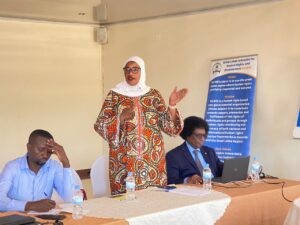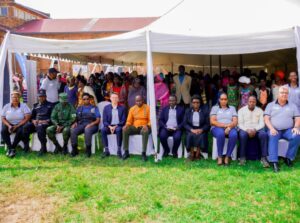The Universal Periodic Review (UPR) is a unique process which involves a periodic review of the human rights records of all 193 UN Member States. It was established when the Human Rights Council was created on 15 March 2006 by the UN General Assembly.
The ultimate goal of UPR is to improve human rights in every country as it is designed to prompt, support, and expand the promotion and protection of human rights on the ground.
When the Great Lakes Initiative for Human Rights and Development (GLIHD) organised a capacity building workshop of the District Field Officers (DFOs) cohort on monitoring the implementations of the UPR recommendations, it aimed at enhancing their capacity to actively monitor and ensure effective implementation of UPR recommendations during the Community Score Card (CSC) roll-out, while fostering engagement with local leaders for collaborative action.
The two-day workshop, which was held on 14-15 March 2024, brought together 21 DFOs, equipping them with comprehensive knowledge of UPR mechanisms, including the processes involved, key stakeholders, and the significance of UPR recommendations in promoting human rights and sustainable development.
Through expert-led and practical exercises, participants were also skilled with knowledge that can enable them to assess the implementation of UPR recommendations within their respective localities. That is to say, they were to gain the ability to identify gaps, challenges, and successes in the implementation process.
In his remarks, Dr Tom Mulisa, Executive Director of GLIHD said, “When we see civil society well equipped with this information, it matters because then we can all be involved. We wish for local leaders to be involved. This is just the beginning; we will prepare more trainings where we discuss on what has been done.”
He mentioned that there will be involvement of different partners in different fields such as gender-based violence, health, among others, where there will be discussions held on all relevant aspects.
Deputy Executive Director of GLIHD, Vestine Umulisa highlighted that the government is doing its part in the promotion of human rights and that civil society as well needs to do its part.
“It’s good to help the government in achieving such goals. As civil society, we ought to do our part as a segment that works closely with citizens. And indeed, it’s also our role to support the government in following up on UPR,” she said.
Why civil society’s role matters
It is through effective reporting that assessments can be carried out and that new, specific, and tailored recommendations can be made. The area of implementation has to be strengthened and sustained as reporting comprehensively on human rights developments is the only way states can be held to account.
Involving local actors in this process is crucial because local actors possess intimate knowledge of the human rights situation on the ground, offering crucial insights.
Their involvement also enhances transparency and accountability within the implementation process, ensuring that actions taken align closely with community needs. Additionally, local participation fosters ownership of the UPR outcomes, empowering communities to advocate for necessary changes effectively.
Civil society involvement also strengthens the legitimacy of the UPR process, showcasing genuine commitment to human rights at the grassroots level, ultimately leading to more impactful and sustainable change.



